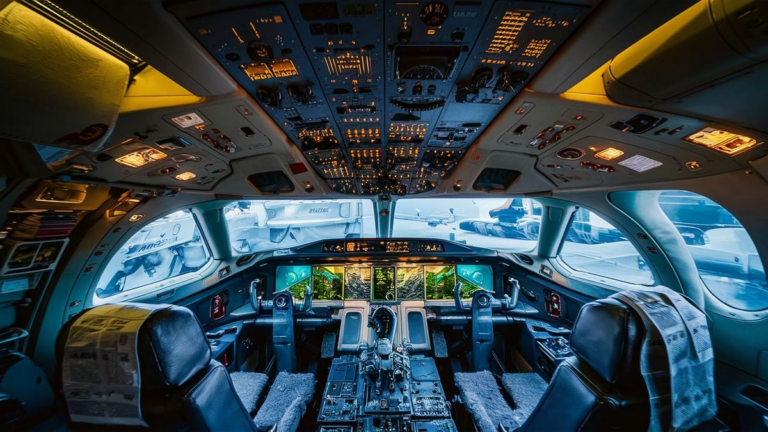When it comes to the debate of whether Airbus is safer than Boeing, it’s essential to consider various factors that contribute to the safety of aircraft. Safety in aviation is a multi-faceted issue influenced by engineering, manufacturing, maintenance practices, pilot training, and regulatory oversight. Let’s delve into the nuances of this discussion.
Engineering and Manufacturing Standards
Both Airbus and Boeing are reputable aircraft manufacturers known for adhering to stringent engineering and manufacturing standards. Each company employs advanced technology and rigorous quality control measures to ensure the safety of their aircraft. While there have been instances of issues with certain aircraft models from both manufacturers, such incidents are typically addressed through thorough investigations and subsequent improvements to design and manufacturing processes.
Maintenance Practices
The safety of an aircraft also depends on the maintenance practices employed by airlines and maintenance crews. Regular inspections, adherence to maintenance schedules, and prompt resolution of any identified issues are crucial aspects of ensuring the safety of both Airbus and Boeing aircraft. Airlines must follow maintenance protocols mandated by regulatory authorities to maintain the airworthiness of their fleets.
Pilot Training and Experience
The competence and experience of pilots play a significant role in ensuring the safe operation of aircraft. Both Airbus and Boeing provide comprehensive training programs for pilots flying their respective aircraft models. Additionally, regulatory authorities set standards for pilot training and certification to ensure that pilots possess the necessary skills and knowledge to handle various flight scenarios safely.
Regulatory Oversight
Regulatory oversight by authorities such as the Federal Aviation Administration (FAA) in the United States and the European Union Aviation Safety Agency (EASA) in Europe is paramount in maintaining the safety of commercial aviation. These regulatory bodies establish and enforce safety standards, conduct certifications of aircraft and components, and oversee airline operations to ensure compliance with safety regulations.
Public Perception and Media Coverage
Public perception and media coverage often shape the narrative surrounding aircraft safety. While incidents involving aircraft accidents or safety concerns may receive significant media attention, it’s important to remember that commercial aviation remains one of the safest modes of transportation statistically. Sensationalized reporting and misconceptions can sometimes distort the public’s perception of aircraft safety.
In conclusion, the question of whether Airbus is safer than Boeing lacks a definitive answer. Both manufacturers prioritize safety and invest considerable resources in engineering, manufacturing, maintenance, pilot training, and regulatory compliance. The safety of commercial aircraft depends on a combination of factors, and continuous efforts from all stakeholders are necessary to ensure the highest standards of safety in aviation.
vironmental Impact
Another aspect to consider when comparing Airbus and Boeing is their environmental impact. This includes factors such as fuel efficiency, emissions, and noise levels. While both companies have made strides in developing more eco-friendly aircraft, assessing their overall environmental footprint can provide insights into their commitment to sustainability.
Fuel Efficiency
Fuel efficiency is a critical consideration in modern aviation, not only for cost-effectiveness but also for reducing carbon emissions. Aircraft with better fuel efficiency contribute less to greenhouse gas emissions per passenger-mile traveled. Evaluating the fuel efficiency of Airbus and Boeing planes can shed light on their environmental performance.
Emissions and Pollution
Carbon emissions from aircraft contribute to climate change, making it essential to monitor and compare the environmental impact of different aircraft models. Additionally, aircraft operations can affect local air quality due to emissions of nitrogen oxides and other pollutants. Analyzing the emissions and pollution levels associated with Airbus and Boeing aircraft can provide insights into their environmental sustainability.
Noise Levels
Aircraft noise pollution can have adverse effects on communities near airports, impacting quality of life and potentially causing health issues. Assessing the noise levels produced by Airbus and Boeing aircraft during takeoff, landing, and flight can help gauge their impact on surrounding areas and evaluate efforts to mitigate noise pollution.
Frequently Asked Questions
| Question | Answer |
|---|---|
| Which manufacturer has a better safety record? | Both Airbus and Boeing have rigorous safety standards, and their safety records are comparable. Safety in aviation depends on various factors beyond the manufacturer, such as maintenance practices and pilot training. |
| Are Airbus or Boeing planes more comfortable for passengers? | Comfort preferences can vary among passengers and depend on factors such as seating layout, cabin amenities, and noise levels. Both Airbus and Boeing offer a range of aircraft configurations, and airlines may customize interiors to enhance passenger comfort. |
| How do Airbus and Boeing prioritize sustainability? | Both Airbus and Boeing have initiatives aimed at reducing their environmental impact, including developing more fuel-efficient aircraft, exploring alternative fuels, and implementing sustainable manufacturing practices. |
See also:






